Sri Lanka hosts the First Asian Youth Assembly of La Via Campesina
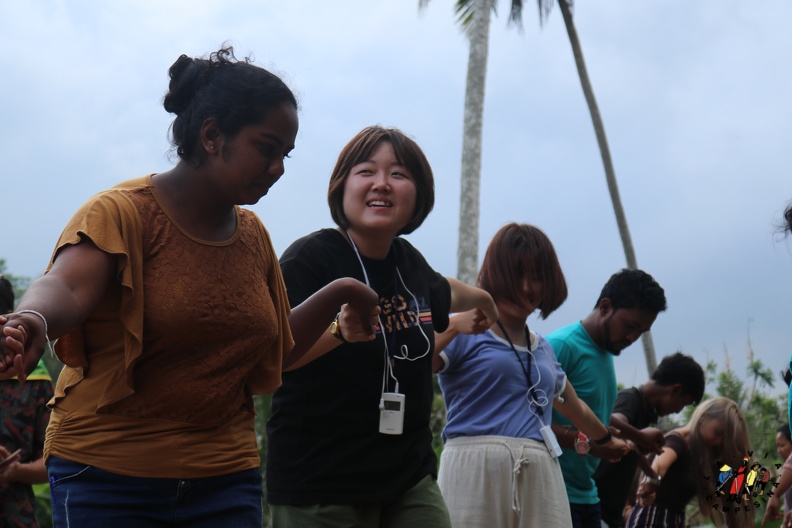
Ahngama, Srilanka: The First Asian Continental Youth Assembly of La Via Campesina took place in Ahngama Srilanka from 11 -14 January 2020, facilitated and hosted by the Movement for Land and Agricultural Reforms (MONLAR). The assembly brought together more than 60 peasant youth, comprising people of different identities and ethnicities and coming from 13 grass-roots movements in 9 countries across the Asian continent.
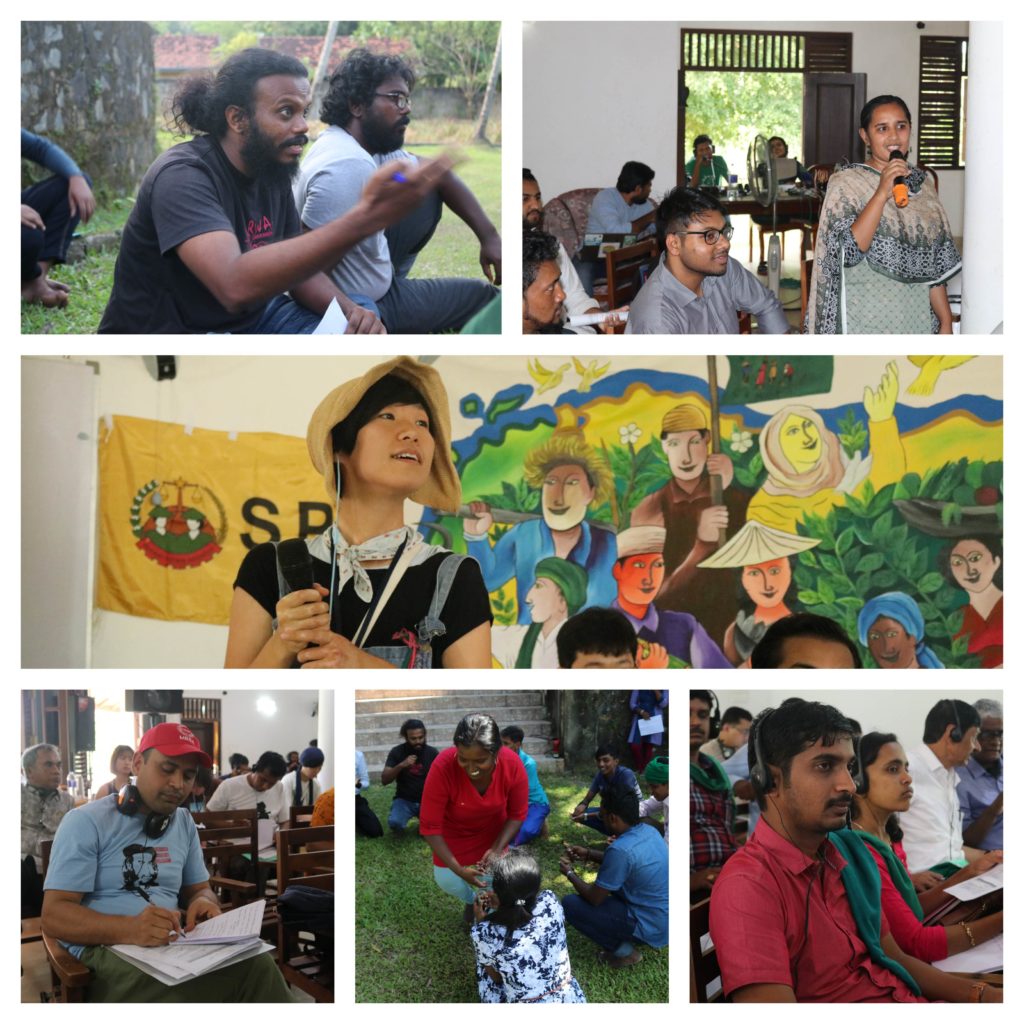
“La Via Campesina is the among the world’s largest movement of peasants and other people working in rural areas. This continental assembly of youth coming from our communities across Asia, is aimed to strengthen our solidarity and to analyse the political, economical and social reasons that has created an agrarian crises in our country side”,
Anuka Vimukti from MONLAR, who is also the International Coordination Committee member of Via Campesina.
Young people from rural peasant organisations in Thailand, South Korea, Indonesia, Philippines, Nepal, India, Pakistan, Bangladesh and Sri Lanka attended the Assembly, which offered to the youth a collective space for socio-political analyses and training on food and agricultural issues.
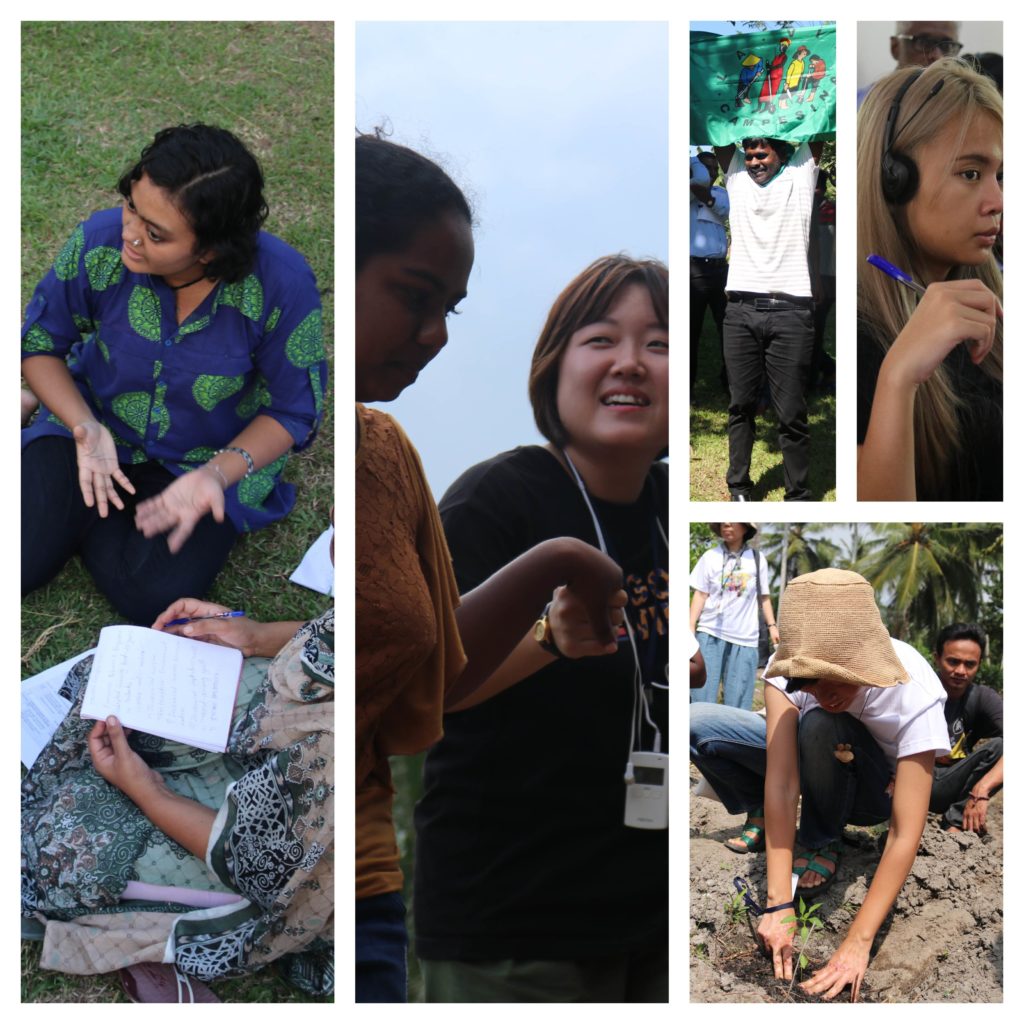
While welcoming the participants to the gathering, Pramesh Pokharel the Asian Youth elect in the International Coordination Committee of La Via Campesina and also from ANPFA Nepal reminded everyone of the harsh realities of the countryside and the context of rising authoritarism across the world.
“28 Years after Via Campesina took birth in Mons, Belgium, a new generation of young leaders have come up in many of our organisations. The world has become more unequal and authoritarian in these decades. Peasants and rural people face neglect and are living in harsh conditions. Young people in our communities need motivation, ‘formacion’ and help in changing these difficult circumstances. Spaces like this Assembly offer the much required political and technical training that our young leaders need in carrying forward the struggles in our territories.”
Pramesh Pokharel the Asian Youth elect in the International Coordination Committee of La Via Campesina and also from ANPFA Nepal
Asia is a hugely diverse continent that also is home to nearly 65% of the world’s peasant and rural population. A majority of the food producers here are marginal or small-holder peasants. Even though the continent has huge diversity in language, culture, food and agricultural practices, much of it is now under threat from a capital-intensive, industrial and mono-cultural forms of agriculture.
The expansion of neo-liberalism through multiple free-trade agreements in the continent has resulted in making agriculture more of a commercial and business activity, pushing many millions of food producers out of their own farms or driving them into deep debt. Most young people in the continent, who took part in the assembly mentioned that agriculture is not a viable option for many of them, to sustain their families. The large scale import of agricultural commodities has endangered the food sovereignty of many nations in the continent, and has also resulted in young people migrating to cities in search of better incomes.
They also pointed to the increasing feminisation of agriculture in the rural areas and the additional burden and health hazards that is being placed on rural women – whether it is due to migration, spread of pesticides in their farms, or onus of managing the family after peasant suicides.
Over the four days of the Assembly, the young delegation attended several lectures, presentations and actively engaged in working group sessions that explored the situation of small-scale food production in Asia, exchanged ideas and experiences of different agroecological practices.
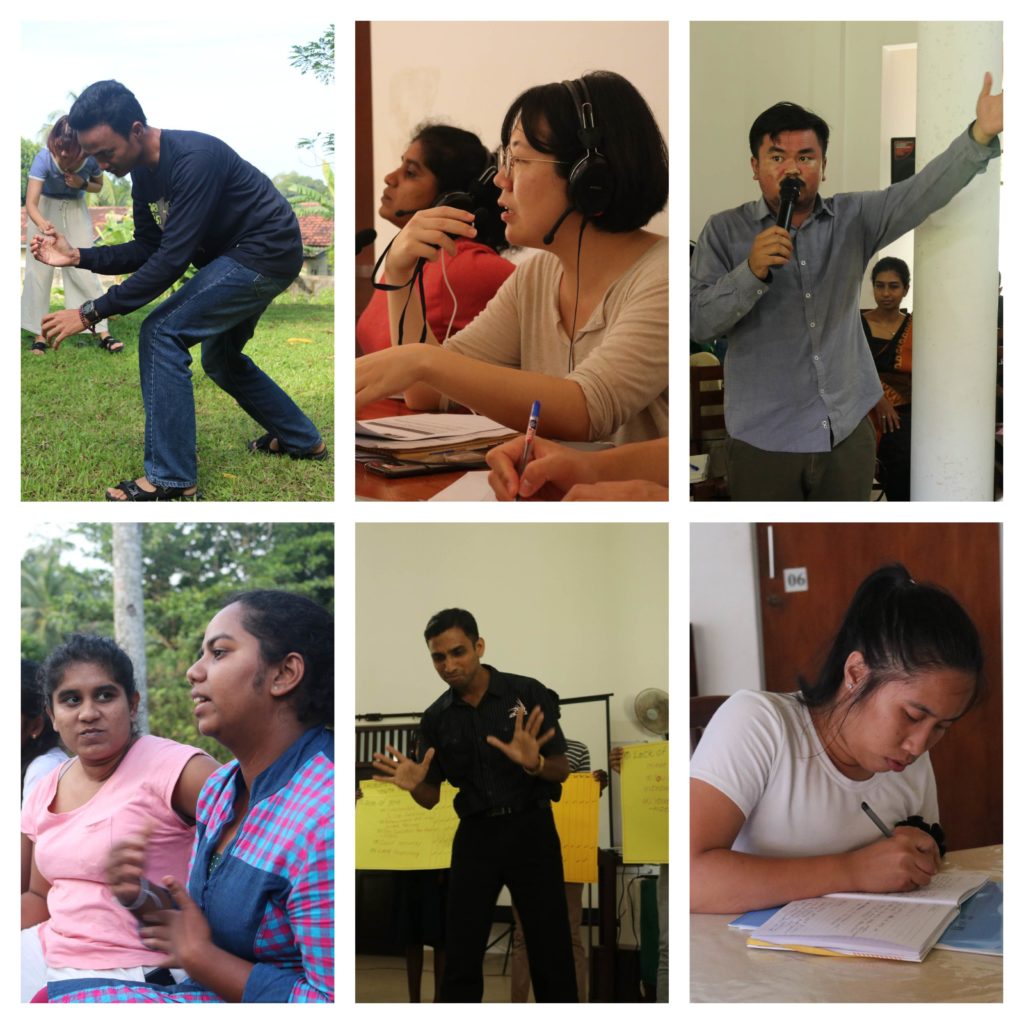
KM Rajegowda from Karnataka Rajya Raita Sangha, Kim Jeongyeol from Korean Women Peasant Association, Zainal Arifin Fuat from Serikat Petani Indonesia,- all of whom are also the ICC members of La Via Campesina, were among the speakers at the conference. Herman Kumar of NAFSO Srilanka, Chintaka Rajapakse from MONLAR, Afsar Jafri from GRAIN, Neth Dano from ETC Group delivered lectures during the Assembly. Yudhvir Singh from Bhartiya Kisan Union, also the ex-ICC member of La Via Campesina, who was a special invitee to the Assembly also presented the origins and the history of the struggles carried out by La Via Campesina in different parts of the world.
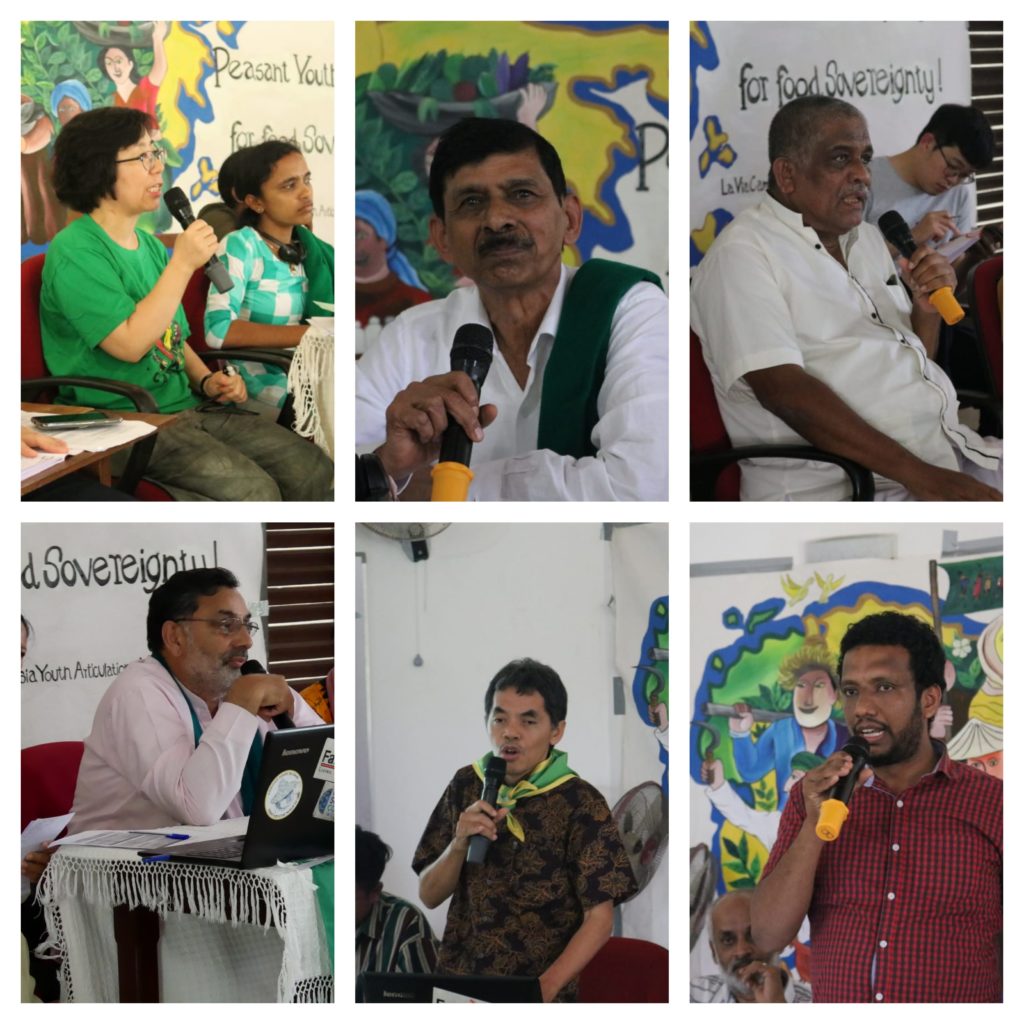
The participants also discussed the history of large scale land-grabbing in the continent, that started through colonisation many decades ago, and in the post-colonial world, through an unholy nexus of large corporations and their friendly governments. They looked at how the States have become the largest appropriators of farm land and oceans, all in the name of ‘development’ and cited several large scale infrastructural projects such as the Belt Road Initiatives, Padma Bridge (B’desh); Colombo Port City, (SL); Gwadar Port (Pak); Hambantota Port (SL); Karachi-Peshawar Rail link, China-Pak Economic Corridor, DMIC (Industrial Corridors), Bullet Train projects and many more.
The role played by global financial institutions such as World Bank, IMF, ADB in denying effective public policies for the welfare of peasant and rural communities were also discussed.
“Free Trade Agreements and World Trade Organisation have helped in the expansion of free-market economy and industrial agriculture in Asia, which came at the cost of peasant local markets and peasant methods of production. It is three decades of neo-liberalism that has robbed us of our futures”
Nawarat Siangsanan from the Assembly of Poor in Thailand.
“The industrial food system uses up 75% of the farm land in the world, they only provide for 30% of the world’s food needs. On the contrary, the peasants, by operating on a quarter of the world’s farm land feed 70% of the population. Yet, Asia is witnessing an unbridled expansion of industrial agriculture. This is despite the fact that industrial agriculture is harmful to the planet and needs 9 times more energy to produce, say one unit of rice, as against peasant methods of production”
Nalini Anjanappa, a young delegate from India.
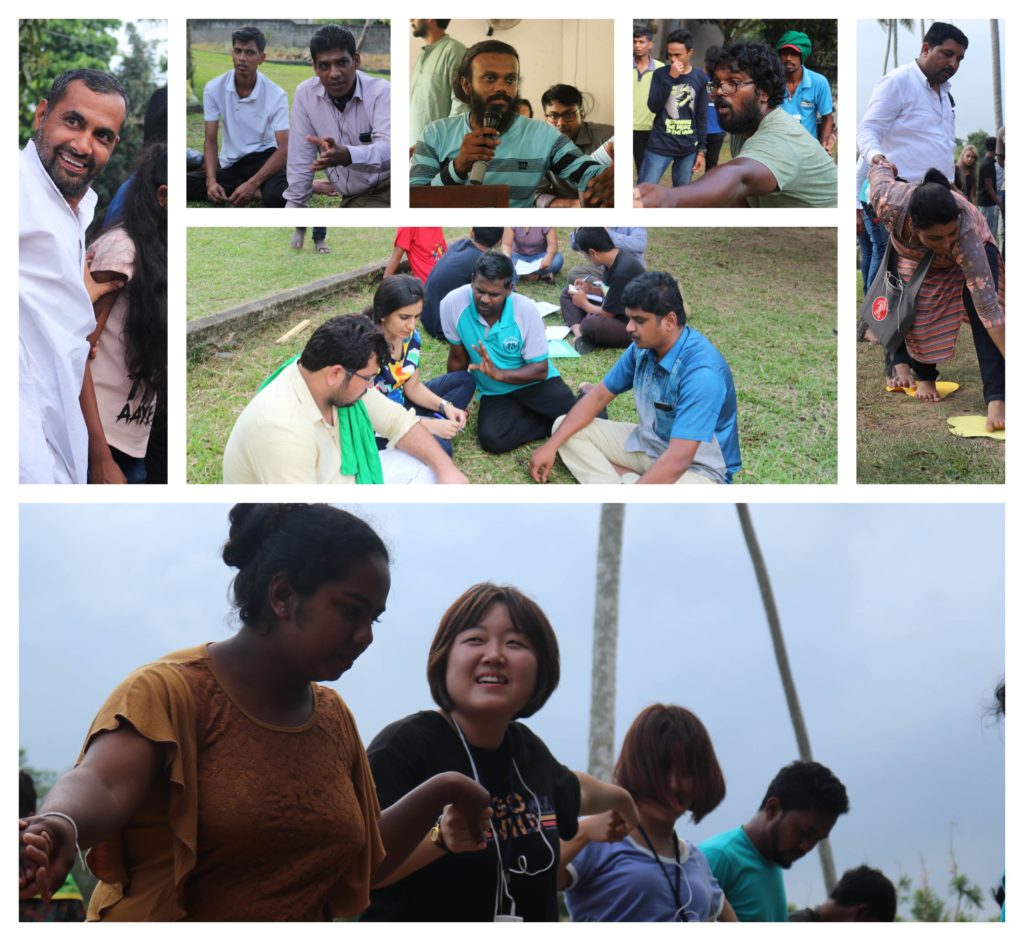
“In one of the presentations, we learnt that these agribusinesses are in-turn owned by Asset Management Companies. In 2016, the world’s five biggest asset management companies collectively owned between 12.4% and 32.7% of the shares of the leading seed/ agrochemical firms (Bayer, Monsanto, DuPont, Syngenta, and Dow – prior to recent mergers). What are these asset management companies doing in agriculture? What do they know?”
Marlan Ifantri from Serikat Petani Indonesia.
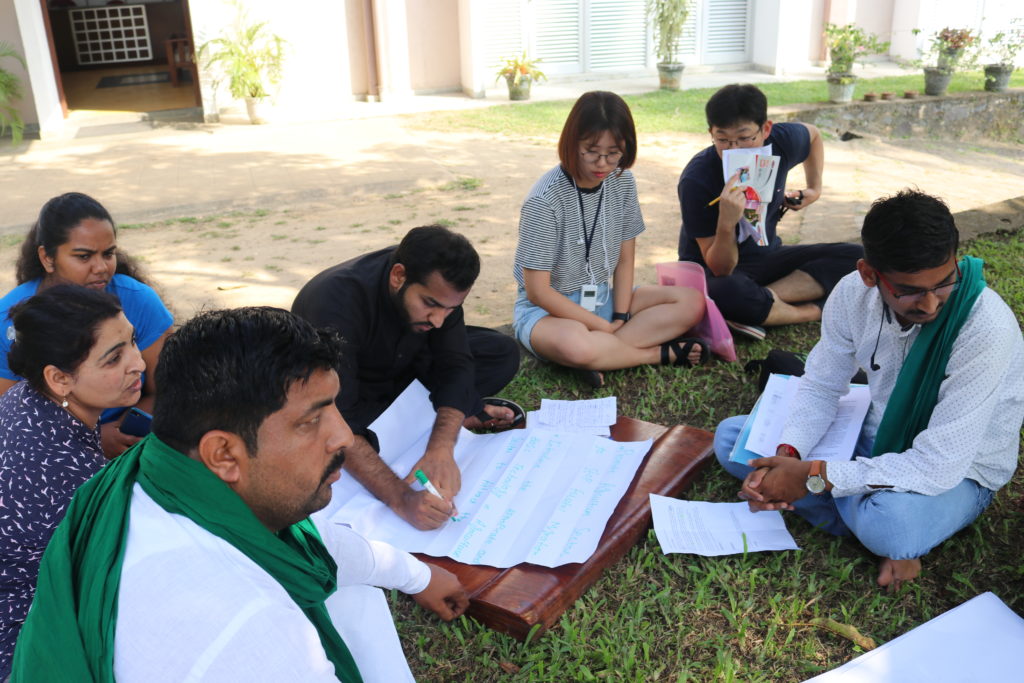
“Peasant movements in India recently won a massive victory against what is arguably the world’s largest free trade agreement – RCEP. It was only possible because the peasant youth also actively participated in the struggle. It is important that rural organisations educate our communities on the dangers of agribusiness corporations and how they use Free Trade agreements as a means to capture our markets.”
Gaurav Tikait from Bhartiya Kisan Union added, alluding the agitations led by Indian movements to stop the country from signing the regional Comprehensive Economic Partnership Agreement.
In the presentation about the UN Declaration on Rights of Peasants and Other people Working in Rural Areas, the participants noted how the 28 articles as mentioned in the UNDROP, if implemented by their own national governments can go a long way in addressing the rural agrarian crises. The 17 year long negotiation for the Declaration was led mostly by peasants themselves, with help from allies and also was a ‘formacion’ process for many of them in understanding how to negotiate, present and lobby for their rights in global governance spaces such as the UN Human Rights Council and such.
“The future of our movement and the planet lies in the hands of the young generation of food producers from our communities. At this point, the odds are stacked against them and many of them are forced to quit farming and migrate to cities, often working in harsh conditions. To reclaim food sovereignty in our villages, we need to first enable our young members of the movement on political and technical aspects of agriculture, agroecology and the struggles around the world that are going on. This Assembly is part of that process of passing on the baton to the younger generation”, added Sharmien Akter Moyna from Bangladesh.
“The younger generation from our communities are also willing to challenge the patriarchal norms that exist on our societies. It is a good thing. A gathering like this gives them the opportunity to understand the origins and political characteristics of rural peasant feminism and to develop a critique of capitalism and neo-liberalism that keeps patriarchy alive in many ways.” added Sujeong Hong from South Korea.
The participants insisted that peasant agroecology is crucial to address global warming.
“It is important for the peasant youth to reclaim food sovereignty in our territories so as to address the problem of migration. We have to reclaim a way of life that promotes local economies and local solutions”, added Pramesh.
The Youth Assembly concluded with the members issuing a joint declaration expressing their opinion and their position on where they stand on the different issues affecting their communities.
Read: Declaration from the First Asian Continental Youth Assembly
They also presented an action plan for the years ahead, where they agreed that the implementation of UNDROP is indeed a common point of action that the peasant youth can rally around and struggle for in the Asian continent. They insisted on organising ‘formacion’ sessions on agroecology, peasant-led communication and climate justice in the coming months.

The participants came from the following member organisations of La Via Campesina in Asia; Pakistan Kissan Rabita Committee, All Nepal Peasants Federation, Bhartiya Kisan Union, Karnataka Rajya Raita Sangha, Tamil Nadu Vivasayigal Sangam, MONLAR Srilanka, BAFLF Bangladesh, Serikat Petani Indonesia, Korean Peasant League, Korean Women Peasants Association, Paragos Philippines, Assembly of Poor and the Northern Peasants Federation in Thailand.
This post is also available in Français.
